ΑΠΟ ΤΗ ΣΥΛΛΟΓΗ «THE DREAM OF A COMMON LANGUAGE» (1978) ΣΕ ΜΕΤΑΦΡΑΣΗ ΤΗΣ ΚΡΥΣΤΑΛΛΗ ΓΛΥΝΙΑΔΑΚΗ
________
Η Κάλλια Παπαδάκη λέει για το ποίημα που διάλεξε
Επέλεξα τα ποιήματα της Adrienne Rich, γιατί έχουν κάτι το βαθιά ανθρώπινο και συνάμα στρατευμένο ενάντια σε οποιαδήποτε διάκριση, που στερεί στον άνθρωπο το δικαίωμα να υπάρχει και να συνυπάρχει, να αγαπά και να αγαπιέται.
__________
 Info:
Info:
Στις 23 Μαΐου θα απονεμηθεί στην Κάλλια Παπαδάκη στις Βρυξέλλες το Βραβείο Λογοτεχνίας της Ευρωπαϊκής Ένωσης (European Union Prize for Literature), για το τελευταίο της βιβλίο «Δενδρίτες» (εκδόσεις Πόλις, 2015). Οι «Δενδρίτες» είναι το πρώτο μυθιστόρημα της Κάλλιας Παπαδάκη (1978). Έχουν προηγηθεί η βραβευμένη συλλογή διηγημάτων «Ο ήχος του ακάλυπτου» (Πόλις, 2009) και η ποιητική συλλογή «Λεβάντα στο Δεκέμβρη» (Πόλις, 2011). Η συγγραφέας έχει επίσης τιμηθεί για τη δουλειά της ως σεναριογράφος.
Adrienne Rich - Twenty One Love Poems
I
Whenever in this city, screens flicker
with pornography, with science-fiction vampires,
victimized hirelings bending to the lash,
we also have to walk...if simply as we walk
through the rainsoaked garbage, the tabloid cruelties
of our own neighborhoods.
We need to grasp our lives inseparable
from those rancid dreams, that blurt of metal, those disgraces,
and the red begonia perilously flashing
from a tenement sill six stories high,
or the long-legged young girls playing ball
in the junior highschool playground.
No one has imagined us. We want to live like trees,
sycamores blazing through the sulfuric air,
dappled with scars, still exuberantly budding,
our animal passion rooted in the city.
II
I wake up in your bed. I know I have been dreaming.
Much earlier, the alarm broke us from each other,
You've been at your desk for hours. I know what I dreamed:
our friend the poet comes into my room
where I've been writing for days,
drafts, carbons, poems are scattered everywhere,
and I want to show her one poem
which is the poem of my life. But I hesitate,
and wake. You've kissed my hair
to wake me. I dreamed you were a poem,
I say, a poem I wanted to show someone...
and I laugh and fall dreaming again
of the desire to show you to everyone I love,
to move openly together
in the pull of gravity, which is not simple,
which carries the feathered grass a long way down the upbreathing air.
III
Since we're not young, weeks have to do time
for years of missing each other. Yet only this odd warp
in time tells me we're not young.
Did I ever walk the morning streets at twenty,
my limbs streaming with purer joy?
did I lean from my window over the city
listening for the future
as I listen with nerves tuned for your ring?
And you, you move towards me with the same tempo.
Your eyes are everlasting, the green spark
of the blue-eyed grass of early summer
the green-blue wild cress washed by the spring.
At twenty, yes: we thought we'd live forever.
At forty-five, I want to know even our limits.
I touch you knowing we weren't born tomorrow,
and somehow, each of us will help the other live,
and somehow, each of us must help the other die.
IV
I come home from you through the early light of Spring
flashing off ordinary walls, the Pez Dorado,
the Discount Wares, the shoe-store...I'm lugging my sack
of groceries, I dash for the elevator
where a man, taut, elderly, carefully composed
lets the door almost close on me. - For God sake hold it!
I croak at him - Hysterical, - he breathes my way.
I let myself into the kitchen, unload my bundles,
make coffee, open the window, put on Nina Simone
singing Here Comes the Sun...I open the mail,
drinking delicious coffee, delicious music,
my body still both light and heavy with you. The mail,
lets fall a Xerox of something written by a man
aged 27, a hostage, tortured in prison:
My genitals have been the object of such a sadistic display
they keep me constantly awake with the pain...
Do whatever you can to survive.
You know, I think men love wars...
And my incurable anger, my unmendable wounds
break open further with tears, I am crying helplessly,
and they still control the world, and you are not in my arms.
V
This apartment full of books could crack open
to the thick jaws, the bulging eyes
of monsters, easily: Once open the books, you have to face
the underside of everything you've loved -
the rack and pincers held in readiness, the gag
even the best voices have had to mumble through,
the silence burying unwanted children -
women, deviants, witness - in desert sand.
Kenneth tells me he's been arranging his books
so he can look at Blake and Kafka while he types;
Yes; and we still have to reckon with Swift
loathing the women's flesh while praising her mind,
Goethe's dread of the mothers, Claudel vilifying Gide,
and the ghosts - their hands clasped for centuries -
of artists dying in childbirth, wise-women charred at the stake,
Centuries of books unwritten piled behind these shelves;
and we still have to stare into absence
of men who would not, women who could not, speak
to our life - this still unexcavated hole
called civilization, this act of translation, this half - world.
VI
Your small hands, precisely equal to my own -
only the thumb is larger, longer - in these hands
I could trust the world, or in many hands like these,
handling power-tools or steering-wheel
or touching a human face...such hands could turn
the unborn child rightways in the birth canal
or pilot the exploratory rescue-ship
through icebergs, or piece together
the fine, needle-like shreds of a great krater-cup
bearing on its sides
fingers of ecstatic women striding
to the sibyl's den or the Eleusinian cave -
such hands might carry out an unavoidable violence
with such restraint, with such a grasp
of the range and limits of violence
that violence ever after would be obsolete.
VII
What kind of beast would turn its life into words?
What atonement is this all about?
- and yet, writing words like these, I'm also living.
Is all this close to the wolverine's howled signals,
that modulated cantana of the wild?
or, when away from you I try to create you in words,
am I simply using you, like a river or a war?
And how have I used rivers, how have I used wars
to escape writing of the worst thing of all -
not the crimes of others, not even our own death,
but the failure to want our own freedom passionately enough
so that blighted elms, sick rivers, massacres would seem
mere emblems of that desecration of ourselves?
VIII
I can see myself years back at Sunion,
hurting with an inflated foot, Philoctetes
in woman's form, limping the long path,
lying on a headland over the dark sea,
looking down the red rocks to where a soundless curl
of white told me a wave had struck,
imagining the pull of that water from that height,
knowing deliberate suicide wasn't my mJtier,
yet all the time nursing, measuring that wound.
Well, that's finished. The woman who cherished
her suffering is dead. I am her descendant.
I love the scar-tissue she handed on to me,
but I want to go on from here with you
fighting the temptation to make a career of pain.
IX
Your silence today is a pond where drowned things live
I want to see raised dripping and brought into the sun.
It's not my own face I see there, but other faces,
even your face at another age.
Whatever's lost there is needed by both of us -
a watch of old gold, a water-blurred fever chart,
a key...Even the silt and pebbles of the bottom
deserve their glint of recognition. I fear this silence,
this inarticulate life. I'm waiting
for a wind that will gently open this sheeted water
for once and show me what I can do
for you, who have often made the unnameable
nameable for others, even for me.
X
Your dog, tranquil and innocent, dozes through
our cries, our murmured dawn conspiracies
our telephone calls. She knows - what can she know?
If in my own arrogance I claim to read
her eyes, I find there only my own animal thoughts:
that creatures must find each other for bodily comfort,
that voices of the psyche drive through the flesh
further than the dense brain could have foretold,
that the planetary nights are growing cold for those
on the same journey, who want to touch
one creature-traveler clear to the end;
that without tenderness, we are all in hell.
XI
Every peak is a crater. This is the law of volcanoes,
making them eternally and visibly female.
No height without depth, without a burning core,
though our straw soles shred on the hardened lava.
I want to travel with you to every sacred mountain
smoking within like the sibyl stooped over her tripod,
I want to reach for your hand as we scale the path,
to feel you arteries glowing in my clasp,
never failing to note the small, jewel-like flower
unfamiliar to us, nameless till we rename her,
that clings to the slowly altering rock-
that detail outside ourselves that brings us to ourselves,
was here before us, knew we would come, and sees beyond us.
XII
Sleeping, turning in turn like planets
rotating in their midnight meadow:
a touch is enough to let us know
we're not alone in the universe, even in sleep:
the dream - ghosts of two worlds
walking their ghost-towns, almost address each other.
I've walked to your muttered words
spoken light - or dark - years away,
as if my own voice had spoken.
But we have different voices, even in sleep,
and our bodies, so alike, are yet so different
and the past echoing through our bloodstreams
is freighted with different language, different meanings -
through in any chronicle of the world we share
it could be written with new meaning
we were two lovers of one gender,
we were two women of one generation.
XIII
The rules break like a thermometer,
quicksilver spills across the charted systems,
we're out in a country that has no language
no laws, we're chasing the raven and the wren
through gorges unexplored since dawn
whatever we do together is pure invention
the maps they gave us were out of date
by years we're driving through the desert
wondering if the water will hold out
the hallucinations turn to simple villages
the music on the radio comes clear -
neither Rosenkavalier nor Gotterdammerung
but a woman's voice singing old songs
with new words, with a quiet bass, a flute
plucked and fingered by women outside the law.
XIV
It was your vision of the pilot
confirmed my vision of you: you said, He keeps
on steering headlong into the waves, on purpose
while we crouched in the open hatchway
vomiting into plastic bags
for three hours between St. Pierre and Miquelon.
I never felt closer to you.
In the close cabin where the honeymoon couples
huddled in each other's laps and arms
I put my hand on your thigh
to comfort both of us, your hand came over mine,
we stayed that way, suffering together
in our bodies, as if all suffering
were physical, we touched so in the presence
of strangers who knew nothing and cared less
vomiting their private pain
as if all suffering were physical.
[The Floating Poem, Unnumbered]
Whatever happens with us, your body
will haunt mine - tender, delicate
your lovemaking, like the half-curled frond
of the fiddlehead fern in forests
just washed by sun. Your traveled, generous thighs
between which my whole face has come and come -
the innocence and wisdom of the placee my tongue has found there -
the live, insatiate dance of your nipples in my mouth -
your touch on me, firm, protective, searching
me out, your strong tongue and slender fingers
reaching where I had been waiting years for you
in my rose-wet cave - whatever happens, this is.
XV
If I lay on that beach with you
white, empty, pure green water warmed by the Gulf Stream
and lying on that beach we could not stay
because the wind drove fine sand against us
as if it were against us
if we tried to withstand it and we failed -
if we drove to another place
to sleep in each other's arms
and the beds were narrow like prisoners' cots
and we were tired and did not sleep together
and this was what we found, so this is what we did -
was the failure ours?
If I cling to circumstances I could feel
not responsible. Only she who says
she did not choose, is the loser in the end.
XVI
Across a city from you, I'm with you
just as an August night
moony, inlet - warm, seabathed, I watched you sleep,
the scrubbed, sheenless wood of the dressing - table
cluttered with our brushes, books, vials in the moonlight -
or a salt - mist orchard, lying at your side
watching red sunset through the screendoors of the cabin,
G minor Mozart on the tape - recorder,
falling asleep to the music of the sea.
This island of Manhattan is wide enough
of both of us, and narrow:
I can hear your breath tonight, I know how your face
lies upturned, the halflight tracing
your generous, delicate mouth
where grief and laughter sleep together.
XVII
No one's fated or doomed to love anyone.
The accidents happen, we're not heroines,
they happen in our lives like car crashes,
books that change us, neighborhoods
we move into and come to love.
Tristan und Isolde is scarcely the story,
women at least should know the difference
between love and death. No prison cup,
no penance. Merely a notion that the tape - recorder
should have caught some ghost of us: that tape - recorder
not merely played but should have listened to us,
and could instruct those after us:
this we were, this is how we tried to love,
and these are the forces we had ranged within us
within us and against us, against us and within us.
XVIII
Rain on the West Side Highway,
red light at Riverside:
the more I live, the more I think
two people together is a miracle.
You're telling the story of your life
for once, a tremor breaks the surface of your words.
The story of our lives becomes our lives.
Now you're in fugue across what some I'm sure
Victorian poet called the salt estarnging sea.
Those are the words that come to mind.
I feel estrangement, yes. As I've felt dawn
pushing toward daybreak. Something: a cleft of light - ?
Close between grief and anger, a space opens
where I am Adrienne alone. And growing colder.
XIX
Can it be growing colder when I begin
to touch myself again, adhesion pull away?
when slowly the naked face turns from staring backward
and looks into the present,
the eye of winter, city, anger, poverty, and death
and the lips part and say: I mean to go on living?
Am I speaking coldly when I tell you in a dream
Or in this poem, There are no miracles?
(I told you from the first I wanted daily life,
this island of Manhattan was island enough for me.)
If I could let you know -
two women together is a work
nothing in civilization has made simple,
two people together is a work
heroic in its ordinariness,
the slow - picked, halting traverse of a pitch
where the fiercest attention becomes routine
- look at the faces of those who have chosen it.
XX
That conversation we were always on the edge
of having, runs on in my head,
at night the Hudson trembles in New Jersey light
polluted water yet reflecting even
Sometimes the moon
and I discern a woman
I loved, drowning in secrets, fear wound round her throat
and choking her like hair. And this is she
with whom I tried to speak, whose hurt, expressive head
turning aside from pain, is dragging down deeper
where it cannot hear me,
and soon I shall know I was talking to my own soul.
XXI
The dark lintels, the blue and foreign stones
of the great round rippled by stone implements
the midsummer night light rising from beneath
the horizon - where I said "a cleft of light"
I meant this. And this is not Stonehenge
simply nor any place but the mind
casting back to where her solitude,
Shared, could be chosen without loneliness,
not easily nor without pains to stake out
the circle, the heavy shadows, the great light.
I choose to be the figure in that light,
half - blotted by darkness, something moving
across that space, the color of stone
greeting the moon, yet more than stone:
a woman. I choose to walk here. And to draw this circle.





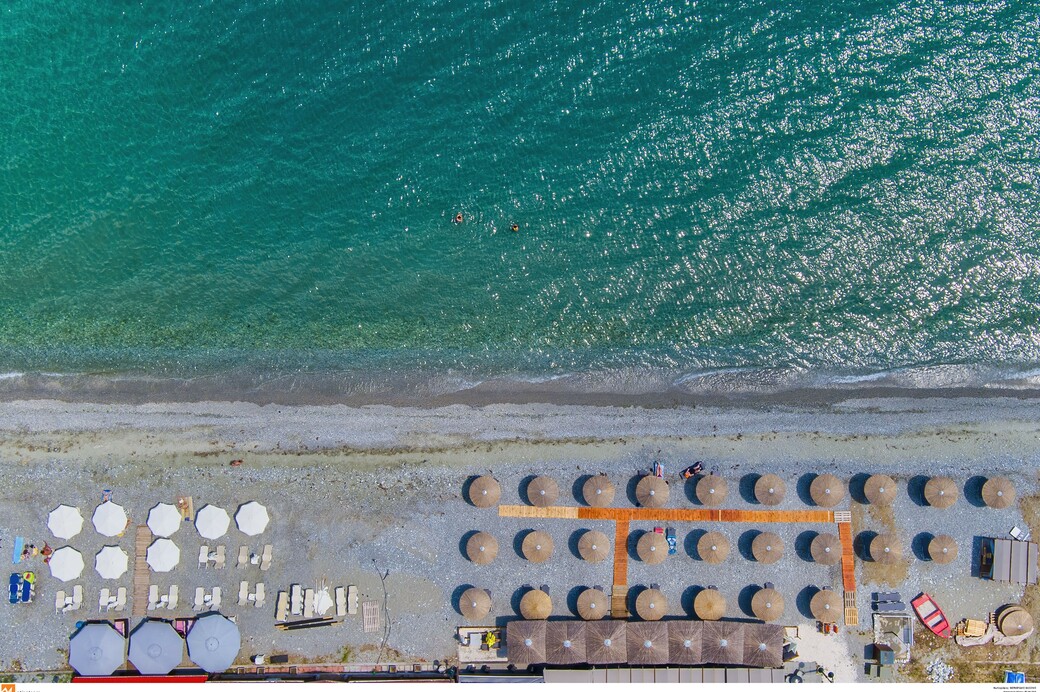
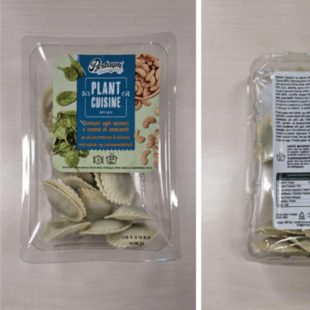




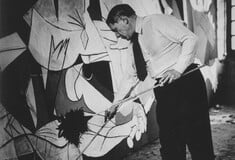









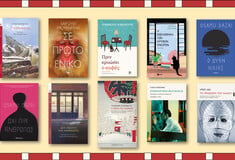
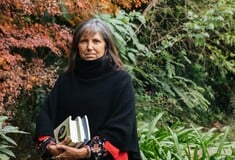



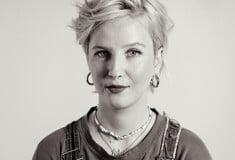

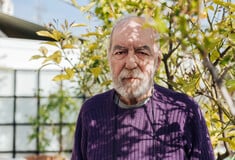
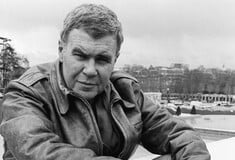
σχόλια